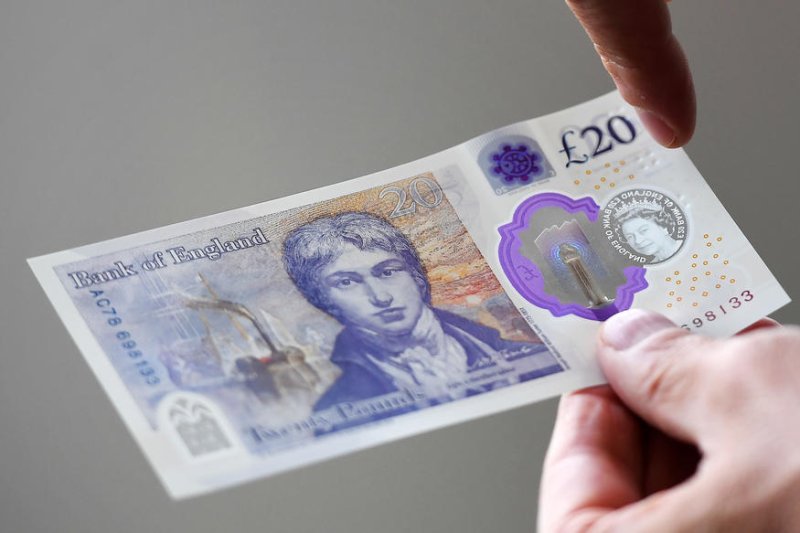Annual CPI in Britain slowed to 6.8% in July from 7.9% in July 2022 helped by a large fall in the price of gas and electricity but remained at its highest level since March 1992 and more than three times the central bank's 2% target. File Photo by Andy Rain/EPA-EFE
Aug. 16 (UPI) -- The falling cost of gas and electricity helped British inflation slow sharply in July to its lowest level since Russia's February 2022 invasion of Ukraine caused prices to skyrocket, but remained at a three-decade high, the country's main statistical agency said Wednesday.
Headline annual Consumer Price Inflation, the pace at which prices are rising, slowed by 1.1% to 6.8% with an almost one-fourth drop in energy inflation, compared to July 2022, providing the largest contribution, according to the latest Office for National Statistics bulletin.
Food prices continued their upward track in July but rose more slowly -- 14.8% compared with 17.3% in July 2022 -- with falls in milk, bread and cereals prices, in particular, helping tame the headline inflation figure.
The annual rate at which the price of goods rose slowed markedly from 8.5% to 6.1% but services price rises gathered pace increasing by 0.2 to 7.4%, their highest level since March 1992 when the services price inflation was 9.5%.
However, the ONS noted that critical underlying inflation, which strips out volatile items like food and energy, remained at a high 6.9%.
"Core inflation was unchanged in July with the falling cost of goods offset by higher services prices," ONS Prices Deputy Director Matthew Corder wrote on social media.
Chancellor Jeremy Hunt hailed the decline in inflation and claimed it was due to the government's prudent fiscal policy.
"The decisive action we've taken to tackle inflation is working, and the rate now stands at its lowest level since February last year. While price rises are slowing, we're not at the finish line. We must stick to our plan to halve inflation this year and get it back to 2%," he said.
"Inflation has fallen down to 6.8% in two months. It's inflation that eats into your savings. It's inflation that makes your money go less far. Halving it is my number one priority. This is how we are getting it done."
Halving inflation from its then-10.5% level is one of five pledges incoming Prime Minister Rishi Sunak made in January for a more prosperous and secure Britain.
But opposition Labor accused the ruling Conservatives of mismanaging the economy.
"Families in Britain are worse off because of 13 years of economic chaos and incompetence under the Conservatives," Shadow Chancellor Rachel Reeves said.
"Inflation in Britain remains high and higher than other major economies. I will build a stronger, more secure economy that puts money back in the pockets of working people."
Britain's CPI is still more than triple the Bank of England's 2% target and significantly above that of its neighbors with comparable economies. France's rate of inflation is 5% while Germany's is 6.5% and inflation across the 20-country eurozone is 5.3%.
CPI in the United States is 3.2%.
July's inflation number together with the latest wages data showing average earnings grew at an inflation-busting 7.8% in the second quarter -- the fastest pace since records began in 2001 -- mean it is odds on the Bank of England will raise interest rates for a 15th consecutive time at its meeting in September.
The central bank raised Bank Rate by 25 basis points to 5.25% on Aug. 3.















